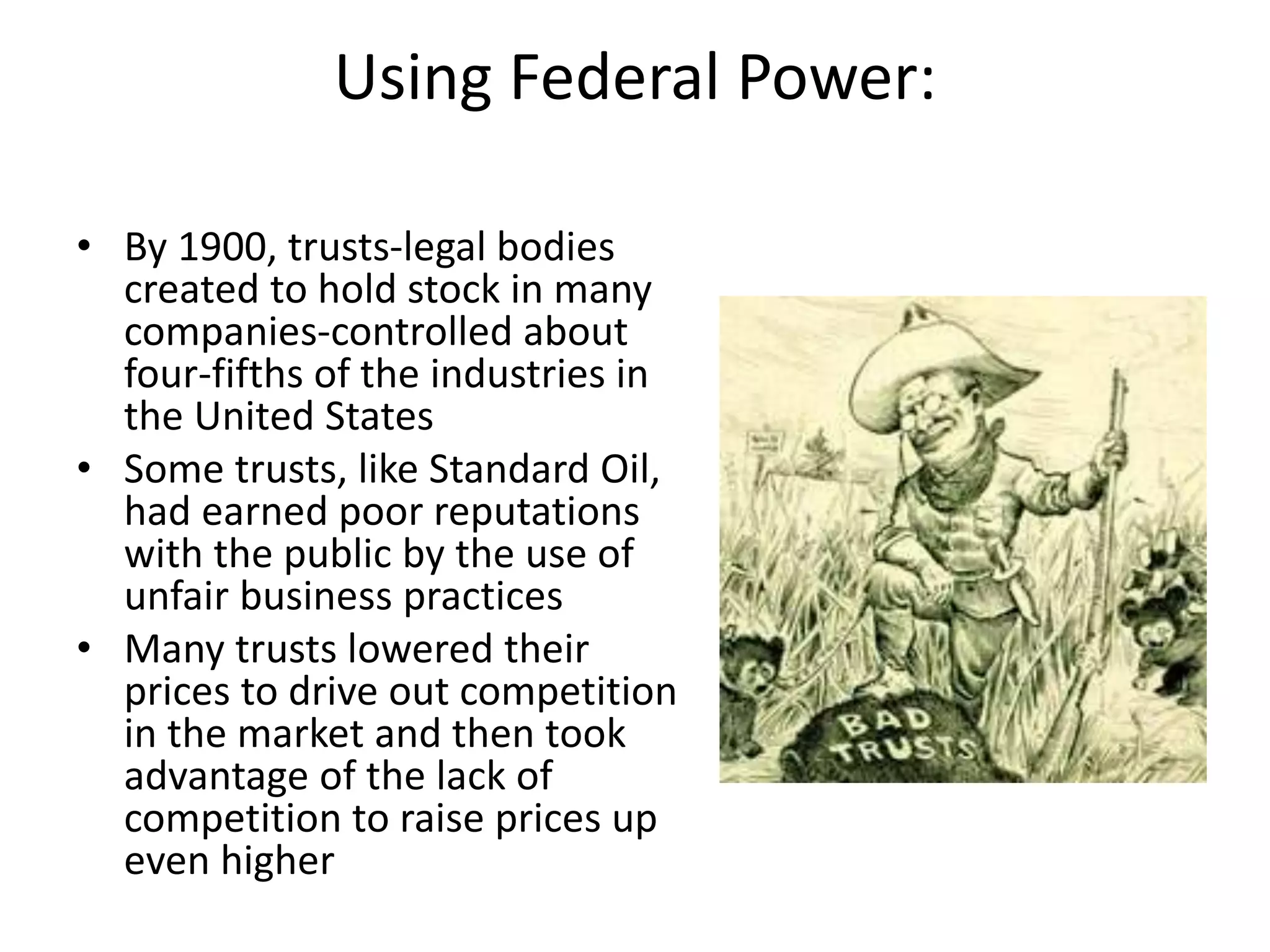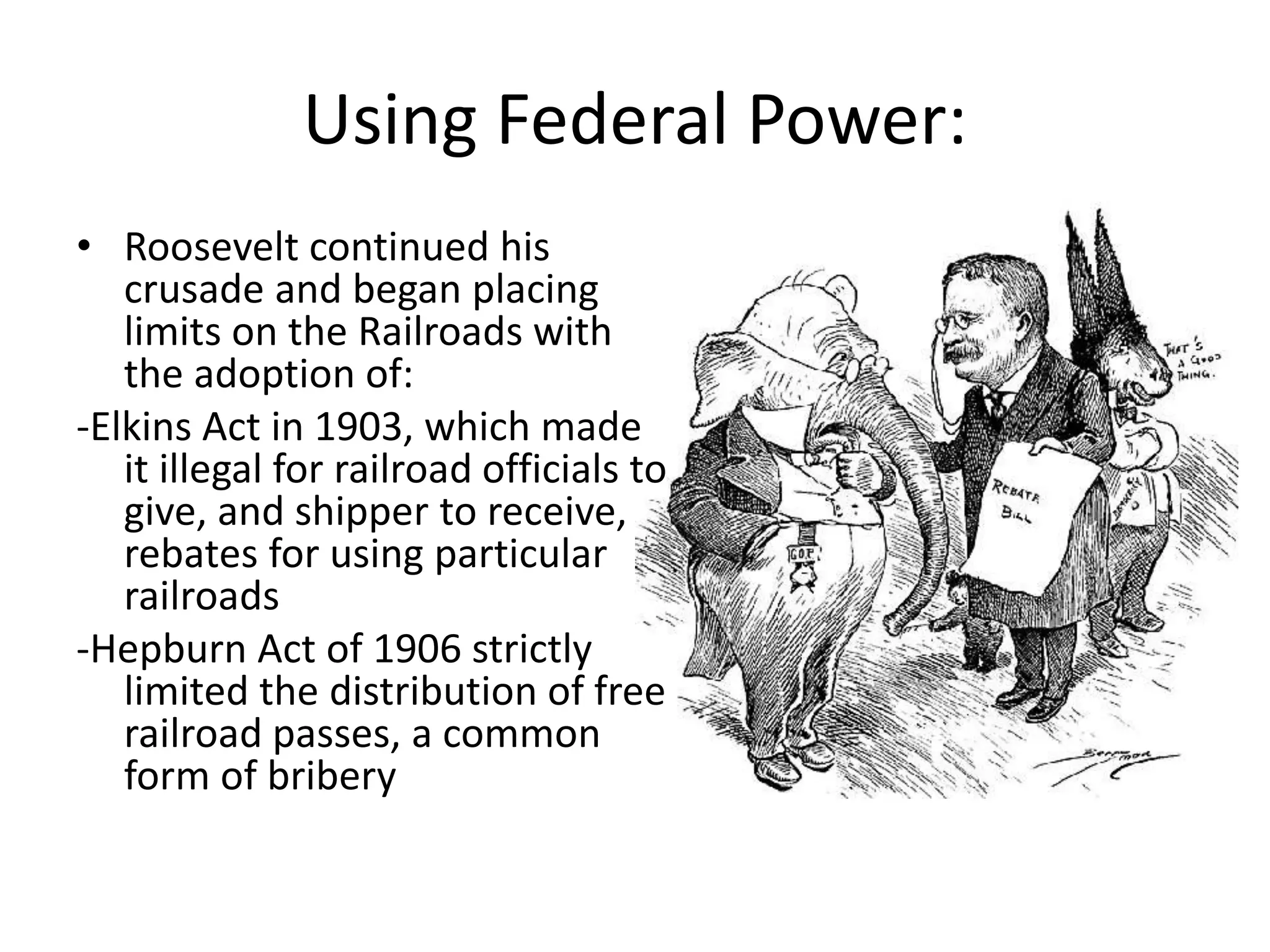Theodore Roosevelt implemented progressive reforms known as the Square Deal in response to muckraking works like Upton Sinclair's The Jungle, which exposed poor conditions in the meatpacking industry. As president, Roosevelt used the "bully pulpit" of the presidency to champion antitrust laws and trust-busting suits. His Square Deal aimed to ensure big businesses did not take advantage of workers and the public received fair treatment through reforms regulating railroads and supporting workers' rights.








